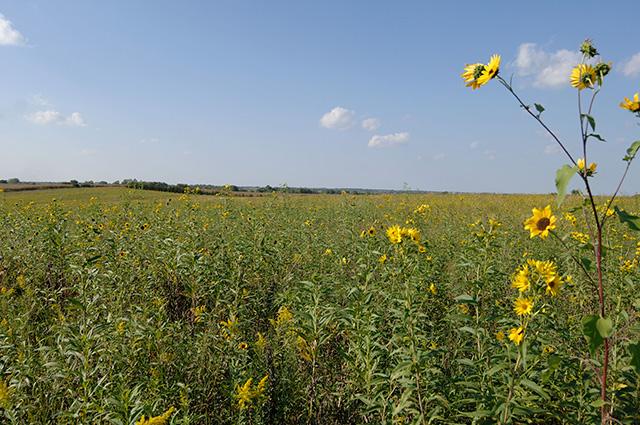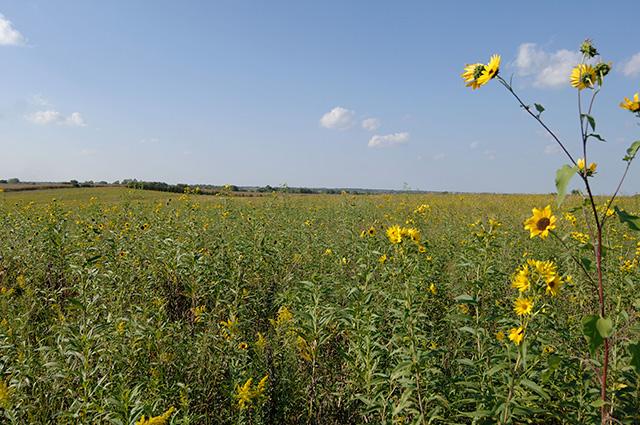Ag Policy Blog
USDA Accepts CRP Acres, and Announces Broadband Awards
USDA Accepts More Than 1 Million Acres for CRP
USDA on Monday announced the Farm Service Agency is accepting more than 1 million acres in this year's Conservation Reserve Program (CRP) general signup, including 295,000 new acres and 891,000 expiring acres re-enrolled.
USDA reports on CRP show 1.9 million acres are set to expire from the program at the end of September. Total enrollment for the program in April was listed at just over 23 million acres.
Under the 2018 farm bill, up to 27 million acres may be enrolled in CRP, which pays farmers to retire land from crop production for environmental and wildlife benefits. When commodity prices are high, as they have been in recent years, it is harder to convince farmers and other landowners to sign up for the program, which pays set rental rates.
Farm Service Agency Administrator Zach Ducheneaux did not say in a news release exactly whether USDA would stay above the 23-million acre level, but noted, "Today's announcement is one of many enrollment and partnership opportunities within CRP, including opportunities through our working lands Grassland CRP, Continuous CRP, and Conservation Reserve Enhancement Program (CREP)."
"USDA will continue working to ensure producers and landowners have the information they need to take advantage of the options that work best for their operations."
FSA added, "The total number of CRP acres will continue to climb in the coming weeks once FSA accepts acres from the Grassland CRP signup, which closed May 26. Additionally, so far this year, FSA has received 761,000 offered acres for the Continuous CRP signup, for which FSA accepts applications year-round."
"The number of accepted acres that are enrolled in General CRP will be confirmed later this year. Participating producers and landowners should also remember that submitting and accepting a CRP offer is the first step, and producers still need to develop a conservation plan before contracts become effective on October 1, 2023.
"Each year, during the window between offer acceptance and land enrollment, some producers ultimately decide not to enroll some accepted acres, without penalty."
USDA Announces $714 Million in Internet Grants, Loans
P[L1] D[0x0] M[300x250] OOP[F] ADUNIT[] T[]
Agriculture Secretary Tom Vilsack on Monday also announced $714 million in grants and loans to connect thousands of rural residents, farmers and business owners in 19 states to high-speed internet service.
"High-speed internet is a key to prosperity for people who live and work in rural communities," Vilsack said.
"Thanks to President Biden's Bipartisan Infrastructure Law, we can ensure that rural communities have access to the internet connectivity needed to continue to expand the economy from the bottom up and middle out and to make sure rural America remains a place of opportunity to live, work, and raise a family."
On a call with reporters, Vilsack stressed the importance of the federal government involvement in building out rural internet service. He said rural communities should not be deprived of access just because it "doesn't necessarily pencil out" for a company to build out the necessary infrastructure. He said a student should have access at home to take a placement test or farmers and rural businesses should not be disadvantaged as well.
"Farmers in this country rely on broadband every single to ensure our food production," he said.
Without loans and grants for broadband, he said, "That basically means we would have two Americas, -- one that is connected and one that is not."
USDA has invested about $2.3 billion for 142 total broadband projects nationally, connecting access to about 314,000 rural Americans.
The White House also stated that other government agencies will soon be announcing as much as $42 billion that will go to states for their own plans to build out broadband access. That money will come from the $65 billion provided for broadband in the 2021 Bipartisan Infrastructure Law.
The grants and loans awarded Monday are in Alaska, Arkansas, Arizona, California, Georgia, Idaho, Kansas, Kentucky, Minnesota, Missouri, Montana, New Mexico, Ohio, Oklahoma, Oregon, South Carolina, Tennessee, Utah and Washington.
This is the fourth round of funding under USDA's ReConnect program. Applicants to ReConnect Program funding must serve a rural area that lacks access to service at speeds of 100 megabits per second (Mbps) download and 20 Mbps upload.
Applicants must also commit to building facilities capable of providing high-speed internet service with speeds of 100 Mbps (download and upload) to every location in the proposed service area.
Additionally, to ensure that rural households that need internet service can afford it, all awardees will be required to apply to participate in the Bipartisan Infrastructure Law's Affordable Connectivity Program (ACP). The ACP offers a discount of up to $30 per month towards internet service to qualifying low-income households and up to $75 per month for households on qualifying Tribal Lands.
Rep. David Scott, D-Ga., the ranking member on the House Agriculture Committee, praised the announcement.
"Reliable high-speed internet access is crucial for businesses to access and compete in markets, improve education attainment, and provide for the health, safety, and well-being of our communities," said Scott.
The full list of awards from Monday can be found here: https://www.rd.usda.gov/…
DTN Ag Policy Editor Chris Clayton contributed to this report.
Jerry Hagstrom can be reached at jhagstrom@nationaljournal.com
Follow him on Twitter @hagstromreport
(c) Copyright 2023 DTN, LLC. All rights reserved.





Comments
To comment, please Log In or Join our Community .